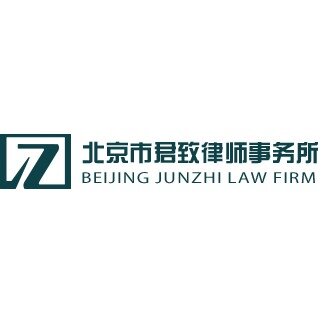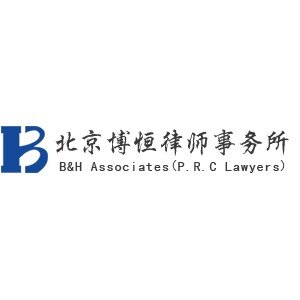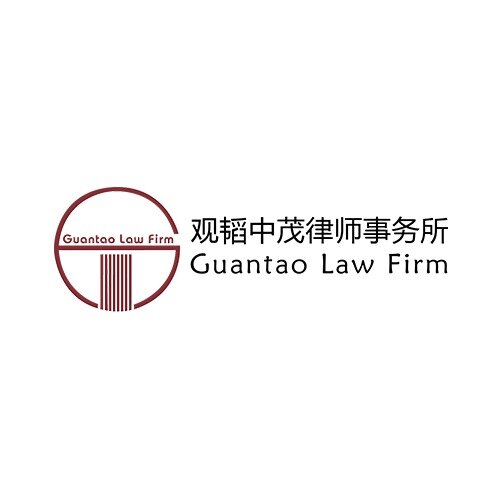Best Foreclosure Lawyers in Beijing
Share your needs with us, get contacted by law firms.
Free. Takes 2 min.
Free Guide to Hiring a Real Estate Lawyer
List of the best lawyers in Beijing, China
About Foreclosure Law in Beijing, China
Foreclosure in Beijing, China, refers to the legal process through which lenders can recover the balance owed on a defaulted loan by seizing and selling the borrower's property. The process is governed by national laws and regulations issued by the People's Republic of China, alongside specific rules adopted by local government authorities in Beijing. Foreclosure typically occurs when a homeowner fails to meet the obligations of their mortgage contract, such as missing payments for an extended period. In Beijing, the foreclosure process can be complex and involves the Chinese court system, which is responsible for adjudicating foreclosure cases and overseeing the sale of properties.
Why You May Need a Lawyer
There are several scenarios where hiring a lawyer can be beneficial when dealing with foreclosure issues:
- Understanding the complex legal terms and conditions outlined in your mortgage agreement.
- Negotiating with lenders to modify loan terms or seek alternatives to foreclosure, such as refinancing or finding a buyer for the property.
- Representing you in court to defend against the foreclosure process or to assert any legal rights you might have, such as fraudulent lending practices or improper documentation.
- Dealing with the legal consequences and potential financial impact a foreclosure might have on your credit score and future loan prospects.
- Providing general legal advice to ensure you are aware of your rights and options at every stage of the foreclosure process.
Local Laws Overview
In Beijing, foreclosure is primarily governed by the civil law framework of the People's Republic of China, including the Property Law and relevant judicial interpretations. Key aspects of local foreclosure laws that property owners should be aware of include:
- The necessity for lenders to acquire a court judgment before proceeding with a foreclosure sale, ensuring due process for the borrower.
- Provisions regarding the redemption period, where a borrower might have a timeframe post-judgment to redeem the property by paying the outstanding debt.
- The prioritization of debts, where secured creditors generally have a higher priority in receiving proceeds from the sale of a foreclosed property.
- Protection for tenants residing in the foreclosed property, where they might have rights to remain in the property until the end of their lease term or receive compensation.
Frequently Asked Questions
What triggers a foreclosure process in Beijing?
Foreclosure is typically triggered by a homeowner's failure to meet the mortgage repayment schedule, which can include missing payments or breaching other terms of the contract.
How long does the foreclosure process take?
The foreclosure process can vary in duration, typically taking several months to over a year, depending on court schedules and potential appeals by either party involved.
Can I stop a foreclosure once it starts?
Yes, there may be ways to stop a foreclosure, such as negotiating with the lender for a loan modification, selling the property, or contesting the process in court.
Will foreclosure affect my future ability to borrow?
Foreclosure may negatively impact your creditworthiness, making it challenging to obtain loans in the future. It is crucial to discuss potential financial ramifications with a financial advisor or lawyer.
Are there any alternatives to foreclosure?
Yes, alternatives include loan modification, refinancing, selling the property, deed in lieu of foreclosure, or short sales.
Do I need to appear in court during the foreclosure process?
Generally, it is essential to be represented or appear in court to defend against the foreclosure, especially if you contest the lender's claims.
What happens to my property after a foreclosure?
After foreclosure, the property is typically auctioned off, and proceeds are used to pay off any outstanding debts. Any surplus is returned to the borrower.
Can I buy back my property after foreclosure?
In some cases, borrowers might have a right of redemption, allowing them to repurchase the property by satisfying the debt within a specific period post-sale, as determined by the court.
Are there any legal protections for homes in foreclosure?
Certain legal measures protect homeowners, such as statutory notices, redemption rights, and protection for tenants, which can vary based on local jurisdiction and specific case circumstances.
What should I do if I feel my lender is acting unfairly?
If you suspect unfair practices, it is essential to consult with a lawyer who can review your case, advise on relevant consumer protection laws, and potentially take legal action against the lender.
Additional Resources
For those seeking more information or assistance with foreclosure in Beijing, consider reaching out to the following resources:
- The Beijing Municipal Bureau of Housing and Urban-Rural Development for regulatory guidance.
- The Beijing Bar Association to find qualified legal professionals specializing in foreclosure law.
- Local consumer protection agencies that can offer support and advice on rights and available legal options.
Next Steps
If you find yourself facing foreclosure or need legal advice in Beijing, consider the following steps:
- Consult with a qualified foreclosure attorney to understand your rights and explore available options.
- Review all relevant loan documentation and court papers diligently.
- Engage in open communication with your lender to discuss possible alternatives to foreclosure.
- Attend any required court hearings and be prepared to present your case if contesting the foreclosure.
- Explore community resources or government programs that may offer financial assistance or counseling.
Lawzana helps you find the best lawyers and law firms in Beijing through a curated and pre-screened list of qualified legal professionals. Our platform offers rankings and detailed profiles of attorneys and law firms, allowing you to compare based on practice areas, including Foreclosure, experience, and client feedback.
Each profile includes a description of the firm's areas of practice, client reviews, team members and partners, year of establishment, spoken languages, office locations, contact information, social media presence, and any published articles or resources. Most firms on our platform speak English and are experienced in both local and international legal matters.
Get a quote from top-rated law firms in Beijing, China — quickly, securely, and without unnecessary hassle.
Disclaimer:
The information provided on this page is for general informational purposes only and does not constitute legal advice. While we strive to ensure the accuracy and relevance of the content, legal information may change over time, and interpretations of the law can vary. You should always consult with a qualified legal professional for advice specific to your situation.
We disclaim all liability for actions taken or not taken based on the content of this page. If you believe any information is incorrect or outdated, please contact us, and we will review and update it where appropriate.
















